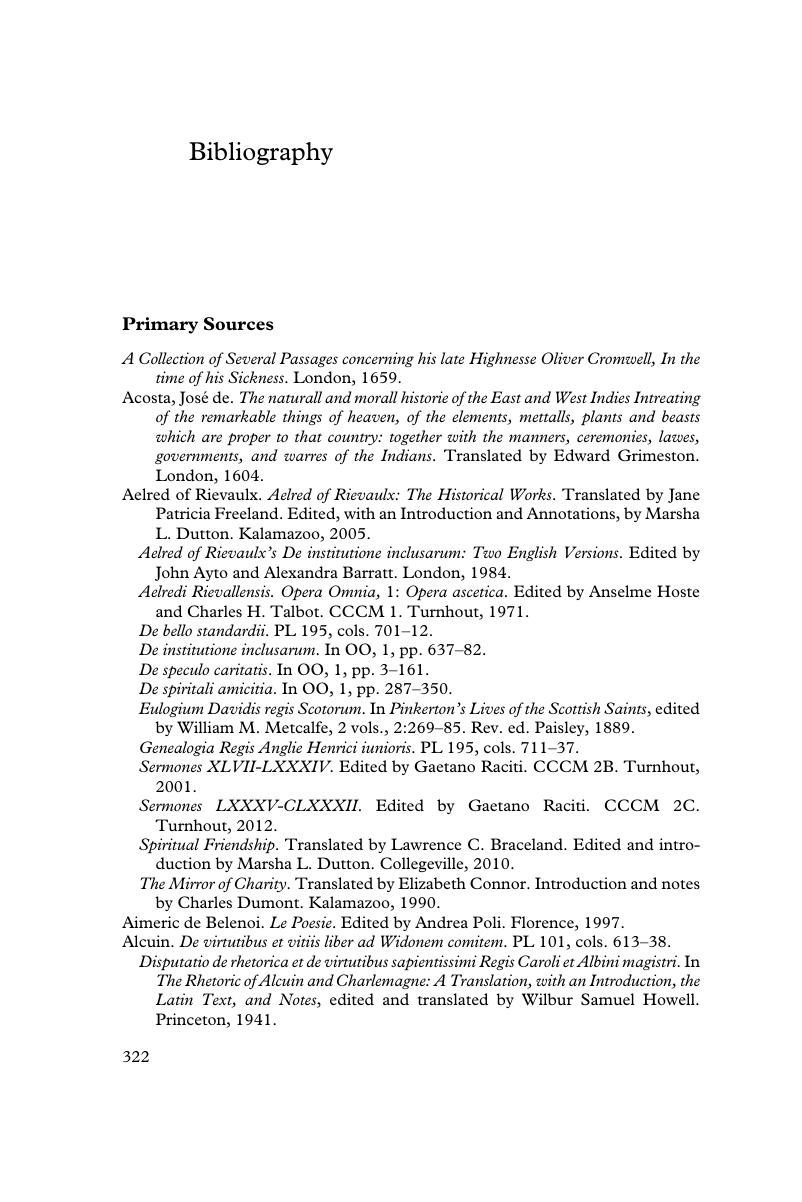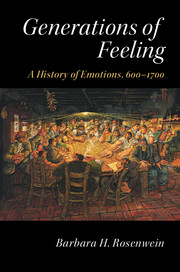Book contents
- Frontmatter
- Dedication
- Epigraph
- Contents
- List of plates
- List of figures
- List of maps and genealogies
- List of tables
- Prefatory note
- Acknowledgments
- List of abbreviations
- Introduction
- 1 Ancient theories
- 2 Attachment and detachment
- 3 Alcuin's therapy
- 4 Love and treachery
- 5 Thomas’ passions
- 6 Theatricality and sobriety
- 7 Gerson's music
- 8 Despair and happiness
- 9 Hobbes’ motions
- Conclusion
- Bibliography
- Index
- References
Bibliography
Published online by Cambridge University Press: 05 November 2015
- Frontmatter
- Dedication
- Epigraph
- Contents
- List of plates
- List of figures
- List of maps and genealogies
- List of tables
- Prefatory note
- Acknowledgments
- List of abbreviations
- Introduction
- 1 Ancient theories
- 2 Attachment and detachment
- 3 Alcuin's therapy
- 4 Love and treachery
- 5 Thomas’ passions
- 6 Theatricality and sobriety
- 7 Gerson's music
- 8 Despair and happiness
- 9 Hobbes’ motions
- Conclusion
- Bibliography
- Index
- References
Summary

- Type
- Chapter
- Information
- Generations of FeelingA History of Emotions, 600–1700, pp. 322 - 358Publisher: Cambridge University PressPrint publication year: 2015



